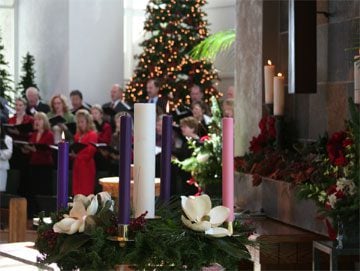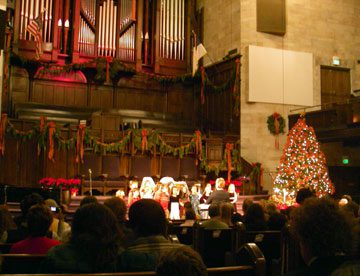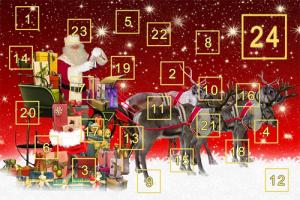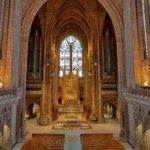Advent Reflection on God’s Promise to David
Lord, where is your unfailing love?
You promised it to David with a faithful pledge.
On this fourth Sunday of Advent, we remember that we are waiting for the one who is the Son of David, the rightful king of Israel. Psalm 89 accentuates this kind of waiting, first by celebrating God’s unfailing love, which was expressed through the Lord’s covenant with David. The Lord promised: “I will establish your descendants as kings forever; they will sit on your throne from now until eternity” (89:1-4). The all-powerful, all-righteous God raised up David as his blessed king, even calling him his “firstborn son” (89:27). This did not identify David as divine, but rather as one favored by the Lord, one whose kingdom would never end (89:29). Even if David’s descendants rejected the Lord, he would still be faithful to David (89:30-37).
At this stage, Psalm 89 makes a quick, jarring u-turn, objecting to God: “But now you have rejected him and cast him off….You have renounced your covenant with him” (89:38-39). Thus, the psalmist asks, “O Lord, where is your unfailing love? You promised it to David with a faithful pledge” (89:49). A couple of verses later, the writer continues as if he were David himself, “Your enemies have mocked me, O LORD; they mock your anointed king wherever he goes” (89:51). The next verse concludes the psalm with another unanticipated u-turn: “Praise the LORD forever! Amen and amen!” (89:52).
Though life has not turned out as the psalmist had hoped, and though it seems to him as if God has contradicted his own commitment to David, nevertheless the psalm writer continues to put his trust and even his praise in God. He looks to the Lord to remember his covenant with David and to raise up someone to rule on David’s throne. In the midst of deep disappointment and suffering, the psalmist exercises shocking freedom in challenging God and shocking faith in praising God.
As we draw closer to the end of Advent, Psalm 89 encourages us to speak freely to the Lord, letting him know all of our yearnings, fears, and frustrations. At the same time, we join the psalm writer by worshiping God even when we don’t understand his ways. We continue to hope in him, looking for the fulfillment of his promises.
QUESTIONS FOR FURTHER REFLECTION: Are there times when you have felt as if God has forgotten his promises? What have you done in those times? In this season of Advent, will you tell God the truth about your hopes for work and life, your fears, your disappointments, your yearnings?
PRAYER: Gracious God, how I thank you for the example of Psalm 89. I am so grateful for the honesty of the psalm writer. He is so free in his praise and in his lament. He lifts his voice to honor you and to complain. He holds nothing back. And, in the end, even when his prayer has yet to be answered, he offers praise to you.
Help me, I pray, to exercise this sort of honest exuberance in my relationship with you. May I open my heart and my lips to praise you with abandon. And may I have confidence to tell you what is burning in my heart, even when it questions your faithfulness.
Like the psalmist, I wonder why you let things in this world be so wrong. I wonder why you tolerate so much suffering, so much injustice. I cry out to you to send your kingdom. I look forward to the day when Jesus, the Son of David, will reign over all the earth. In my waiting, I offer you all that I am, including my praise.
“Praise the LORD forever! Amen and amen!”
_________________________________________________
 Would you like to receive a Daily Reflection like this one in your email inbox each morning?
Would you like to receive a Daily Reflection like this one in your email inbox each morning?
Here’s how . . . .
This devotional comes from The High Calling: Everyday Conversations about Work, Life, and God (www.thehighcalling.org). You can read my Daily Reflections there, or sign up to have them sent to your email inbox each day. This website contains lots of encouragement for people who are trying to live out their faith in the workplace. The High Calling is associated with Laity Lodge, where I work.















